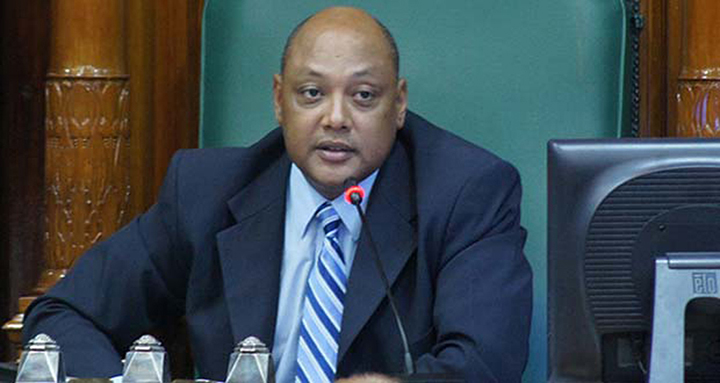Without venturing too deeply into what is known in Guyana as the ‘nitty gritty’ of what appears to be a surge of genuine anger by gold miners comprising the so-called gold mining syndicates, it is difficult to ignore what appears to be the dramatic – and, hopefully, temporary – turnaround in the fortunes of an initiative which, just a few months ago was being hailed as one of the more forward-looking implemented by the APNU-AFC administration in its quest to turn around the economic fortunes of ordinary Guyanese.
The mining sector is, to say the least, complex and when you listen to the syndicate members above the din of their complaints you come to understand that their concerns have to do, chiefly, though not exclusively, with what they believe is a prejudiced regimen that applies to the allocation of mining lands to syndicates and that that prejudice essentially maintains what they say is the ‘big miner’ status quo that applies in the sector.
It seemed at its inception, that the syndicate idea was intended as an initiative to reverse the notion that had become entrenched under the previous political administration that vast tracts of the gold-bearing lands in the country were controlled by a handful of individuals who were effectively functioning as landlords, renting modest portions to smaller, landless minders then promptly evicting them (at least so the story goes) once gold deposits were found.
Some of the miners who enthusiastically embraced the syndicate idea, having seen it as the best opportunity to acquire land, albeit under a cooperative arrangement had literally closed down their small operations (some of them have remained closed for more than a year) waiting for the syndicates to materialise. Several weeks ago, the age-old big miner/small miner schism surfaced again between representatives of the syndicates and officials of the Guyana Gold and Diamond Miners Association. (GGDMA). At the time officials of two of the syndicates told this newspaper that the concern of the GGDMA (representing the bigger miners) was that an allocation policy that effectively made more lands available to small miners would effectively break the back of landlordism by reducing if not ending altogether the need for smaller miners to seek small parcels of land to rent from the bigger players.
In an August 20 presentation to a Mining Week event Natural Resources Minister Raphael Trotman disclosed that the GGDMA was working towards ensuring that the lands allocated to miners become available “by the end of the month” (August). Two issues arise here. First it is not just the availability of lands but the allowable limits of the lands to which the syndicates have access. The second issue is that it appears that the relationship between the Ministry of Natural Resources and the syndicates has declined to a point where trust has become an issue. The syndicates, having along with the GGDMA, boycotted the Mining Week celebrations are not only demanding to see the President but are also threatening more protests.
All of this is by no means good news for the government which, when it mooted the syndicate idea in the first place, had garnered some support from the miners themselves. The other point to be made is that the situation has evolved to where it seems that the membership of the GGDMA (which has its own grievances with the government) are now, in a sense, unlikely bedfellows with the syndicates when the two appeared, just a matter of a few months ago, to be at daggers’ drawn.
Given the critical importance of the mining sector to the country’s economy as a whole, the last thing government needs is an unstable sector that could have a negative impact on gold production, gold declarations and, ultimately, revenue accruing to the public treasury from the gold mining industry.
If what the miners and some GGMC staff say is true, the government has been unable, up until now, to clear up all of the various anomalies that obtain at the GGMC pertaining to the operational aspects of the gold mining sector. Syndicate members say openly that laid procedures are set aside with monotonous regularity in the face of imperatives that are driven by other less than noble motivations.
It is in the interest of the mining sector, the syndicates and the country’s economy as a whole that syndicates be given a fair opportunity to work on a playing field that is level and which seeks to respect and protect, equally, the interests of all of the stakeholders. Otherwise, we would have only ourselves to blame for the fallout that now threatens.





